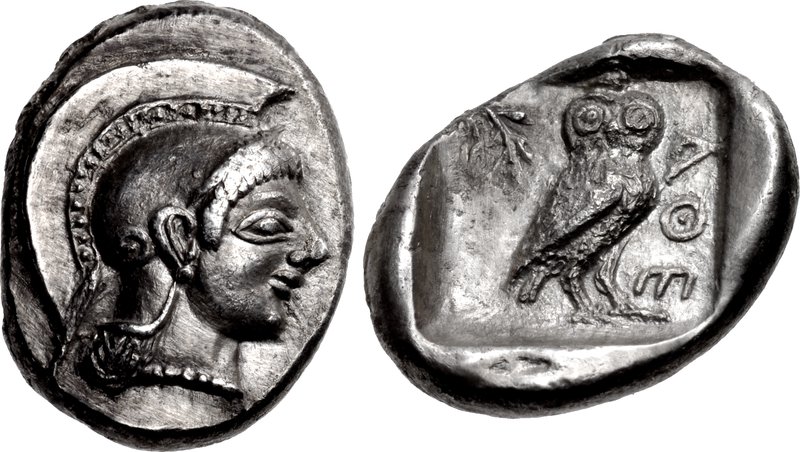|
487 BC
__NOTOC__ Year 487 BC was a year of the pre-Julian Roman calendar. At the time, it was known as the Year of the Consulship of Sicinius and Aquillius (or, less frequently, year 267 '' Ab urbe condita''). The denomination 487 BC for this year has been used since the early medieval period, when the Anno Domini calendar era became the prevalent method in Europe for naming years. Events By place Greece * The island of Aegina and the city of Athens go to war. The island has earned the enmity of Athens by earlier submitting to the Persians. The Spartan King, Leotychidas, tries unsuccessfully to arrange a truce in the war. * The Athenian Archonship becomes elective by lot from all the citizens, an important milestone in the move towards radical Athenian democracy. There are nine archons and a secretary. Three of the archons have special functions: the basileus, or sovereign; the polemarch (originally a military commander); and the archon eponymous (chief magistrate), who gave ... [...More Info...] [...Related Items...] OR: [Wikipedia] [Google] [Baidu] |
Roman Calendar
The Roman calendar was the calendar used by the Roman Kingdom and Roman Republic. The term often includes the Julian calendar established by the reforms of the Roman dictator, dictator Julius Caesar and Roman emperor, emperor Augustus in the late 1stcenturyBC and sometimes includes any system dated by inclusive counting towards months' kalends, nones (calendar), nones, and ides (calendar), ides in the Roman manner. The term usually excludes the Alexandrian calendar of Roman Egypt, which continued the unique months of that land's Egyptian calendar, former calendar; the Byzantine calendar of the Byzantine Empire, later Roman Empire, which usually dated the Roman months in the simple count of the ancient Greek calendars; and the Gregorian calendar, which refined the Julian system to bring it into still closer alignment with the tropical year. Roman dates were counted inclusively forward to the next of three principal days: the first of the month (the kalends), a day shortly befor ... [...More Info...] [...Related Items...] OR: [Wikipedia] [Google] [Baidu] |
Cleisthenes
Cleisthenes ( ; grc-gre, Κλεισθένης), or Clisthenes (c. 570c. 508 BC), was an ancient Athenian lawgiver credited with reforming the constitution of ancient Athens and setting it on a democratic footing in 508 BC. For these accomplishments, historians refer to him as "the father of Athenian democracy." He was a member of the aristocratic Alcmaeonid clan. He was the younger son of Megacles and Agariste making him the maternal grandson of the tyrant Cleisthenes of Sicyon. He was also credited with increasing the power of the Athenian citizens' assembly and for reducing the power of the nobility over Athenian politics. In 510 BC, Spartan troops helped the Athenians overthrow the tyrant Hippias, son of Peisistratus. Cleomenes I, king of Sparta, put in place a pro-Spartan oligarchy headed by Isagoras. But his rival Cleisthenes, with the support of the middle class and aided by democrats, took over. Cleomenes intervened in 508 and 506 BC, but could not stop Cleisthenes and ... [...More Info...] [...Related Items...] OR: [Wikipedia] [Google] [Baidu] |
Philosophy
Philosophy (from , ) is the systematized study of general and fundamental questions, such as those about existence, reason, knowledge, values, mind, and language. Such questions are often posed as problems to be studied or resolved. Some sources claim the term was coined by Pythagoras ( BCE), although this theory is disputed by some. Philosophical methods include questioning, critical discussion, rational argument, and systematic presentation. in . Historically, ''philosophy'' encompassed all bodies of knowledge and a practitioner was known as a ''philosopher''."The English word "philosophy" is first attested to , meaning "knowledge, body of knowledge." "natural philosophy," which began as a discipline in ancient India and Ancient Greece, encompasses astronomy, medicine, and physics. For example, Newton's 1687 ''Mathematical Principles of Natural Philosophy'' later became classified as a book of physics. In the 19th century, the growth of modern research universiti ... [...More Info...] [...Related Items...] OR: [Wikipedia] [Google] [Baidu] |
Ancient Greece
Ancient Greece ( el, Ἑλλάς, Hellás) was a northeastern Mediterranean civilization, existing from the Greek Dark Ages of the 12th–9th centuries BC to the end of classical antiquity ( AD 600), that comprised a loose collection of culturally and linguistically related city-states and other territories. Most of these regions were officially unified only once, for 13 years, under Alexander the Great's empire from 336 to 323 BC (though this excludes a number of Greek city-states free from Alexander's jurisdiction in the western Mediterranean, around the Black Sea, Cyprus, and Cyrenaica). In Western history, the era of classical antiquity was immediately followed by the Early Middle Ages and the Byzantine period. Roughly three centuries after the Late Bronze Age collapse of Mycenaean Greece, Greek urban poleis began to form in the 8th century BC, ushering in the Archaic period and the colonization of the Mediterranean Basin. This was followed by the age of Classical G ... [...More Info...] [...Related Items...] OR: [Wikipedia] [Google] [Baidu] |
Gorgias
Gorgias (; grc-gre, Γοργίας; 483–375 BC) was an ancient Greek sophist, pre-Socratic philosopher, and rhetorician who was a native of Leontinoi in Sicily. Along with Protagoras, he forms the first generation of Sophists. Several doxographers report that he was a pupil of Empedocles, although he would only have been a few years younger. "Like other Sophists, he was an itinerant that practiced in various cities and giving public exhibitions of his skill at the great pan-Hellenic centers of Olympia and Delphi, and charged fees for his instruction and performances. A special feature of his displays was to ask miscellaneous questions from the audience and give impromptu replies." W. K. C. Guthrie, ''The Sophists'' (New York: Cambridge University Press, 1971), p. 270. He has been called "Gorgias the Nihilist" although the degree to which this epithet adequately describes his philosophy is controversial.Rosenkrantz, G. (2002). The Possibility of Metaphysics: Substance, Identity ... [...More Info...] [...Related Items...] OR: [Wikipedia] [Google] [Baidu] |
Amaniastabarqa
Amaniastabarqa (also Amaniastabarqo) was a Kushite king of Meroë who ruled in the late Sixth or early Fifth centuries BC, c. 510–487 BCE.Stele of King Amaniastabarqa Museum of Fine Arts, Boston. Reign He is the presumed successor of Karkamani, according to the sequence of the at where he was buried (no. 2). The pyramid was excavated by a |
Kingdom Of Kush
The Kingdom of Kush (; Egyptian language, Egyptian: 𓎡𓄿𓈙𓈉 ''kꜣš'', Akkadian language, Assyrian: ''Kûsi'', in LXX grc, Κυς and Κυσι ; cop, ''Ecōš''; he, כּוּשׁ ''Kūš'') was an ancient kingdom in Nubia, centered along the Nile Valley in what is now northern Sudan and southern Egypt. The region of Nubia was an early cradle of civilization, producing several complex societies that engaged in trade and industry. The city-state of Kerma emerged as the dominant political force between 2450 and 1450 BC, controlling the Nile Valley between the first and fourth Cataracts of the Nile, cataracts, an area as large as Egypt. The Egyptians were the first to identify Kerma as "Kush" and over the next several centuries the two civilizations engaged in intermittent warfare, trade, and cultural exchange. Much of Nubia came under Egyptian rule during the New Kingdom of Egypt, New Kingdom period (1550–1070 BC). Following Egypt's disintegration amid the Lat ... [...More Info...] [...Related Items...] OR: [Wikipedia] [Google] [Baidu] |
Siaspiqa
Siaspiqa (also Si'aspiqo) was a ruler of the Kushite kingdom of Meroë reigning for close to twenty years in the first half of the 5th century BC. Very little is known of Siaspiqa's activities beyond the construction of his pyramid at Nuri, now known as Nuri 4. The pyramid and its chapel have yielded several inscribed stelas bearing his name as well as numerous artefacts suggesting a once rich burial. Nothing is known for certain on the relations between Siaspiqa and his predecessor Amaniastabarqa and successor Nasakhma. Equally uncertain is the identity of his consort, with queen Pi'ankhqewqa buried in the nearby Nuri 29 conjectured for that role. Identity and chronology Siaspiqa is known under two or less likely three names: his nomen Siaspiqa and one or two throne names Segerehtawyre, which means " Ra is the pacifier of the Two Lands", and possibly Semenkheretnetjer. This last name is contested as it could instead be the name of a ritual connected with erecting the pyramid, ... [...More Info...] [...Related Items...] OR: [Wikipedia] [Google] [Baidu] |
Roman Conquest Of The Hernici
The Roman conquest of the Hernici, an ancient Italic people, took place during the 4th century BC. For most of the 5th century BC, the Roman Republic had been allied with the other Latin states and the Hernici to successfully fend off the Aequi and the Volsci. In the early 4th century BC, this alliance fell apart. A war fought between Rome and the Hernici in the years 366–358 BC ended in Roman victory and the submission of the Hernici. Rome also defeated a rebellion by some Hernician cities in 307–306 BC. The rebellious Hernici were incorporated directly into the Roman Republic, while those who had stayed loyal retained their autonomy and nominal independence. In the course of the following century, the Hernici became indistinguishable from their Latin and Roman neighbours and disappeared as a separate people. The ''Foedus Cassianum'' – 5th century BC From at least the early fifth century BC there were disputes between Rome and the Hernici. In 495 BC, the Hernici joined the ... [...More Info...] [...Related Items...] OR: [Wikipedia] [Google] [Baidu] |
Roman Republic
The Roman Republic ( la, Res publica Romana ) was a form of government of Rome and the era of the classical Roman civilization when it was run through public representation of the Roman people. Beginning with the overthrow of the Roman Kingdom (traditionally dated to 509 BC) and ending in 27 BC with the establishment of the Roman Empire, Rome's control rapidly expanded during this period—from the city's immediate surroundings to hegemony over the entire Mediterranean world. Roman society under the Republic was primarily a cultural mix of Latin and Etruscan societies, as well as of Sabine, Oscan, and Greek cultural elements, which is especially visible in the Roman Pantheon. Its political organization developed, at around the same time as direct democracy in Ancient Greece, with collective and annual magistracies, overseen by a senate. The top magistrates were the two consuls, who had an extensive range of executive, legislative, judicial, military, and religious powers ... [...More Info...] [...Related Items...] OR: [Wikipedia] [Google] [Baidu] |
Ostracism
Ostracism ( el, ὀστρακισμός, ''ostrakismos'') was an Athenian democratic procedure in which any citizen could be expelled from the city-state of Athens for ten years. While some instances clearly expressed popular anger at the citizen, ostracism was often used preemptively. It was used as a way of neutralizing someone thought to be a threat to the state or potential tyrant, though in many cases popular opinion often informed the choice regardless. The word "ostracism" continues to be used for various cases of social shunning. Procedure The name is derived from the pottery shards that were used as voting tokens, called ''ostraka'' (singular ''ostrakon'', ) in Greek. Broken pottery, abundant and virtually free, served as a kind of scrap paper (in contrast to papyrus, which was imported from Egypt as a high-quality writing surface, and was thus too costly to be disposable). Each year the Athenians were asked in the assembly whether they wished to hold an ostracis ... [...More Info...] [...Related Items...] OR: [Wikipedia] [Google] [Baidu] |



.jpg)



